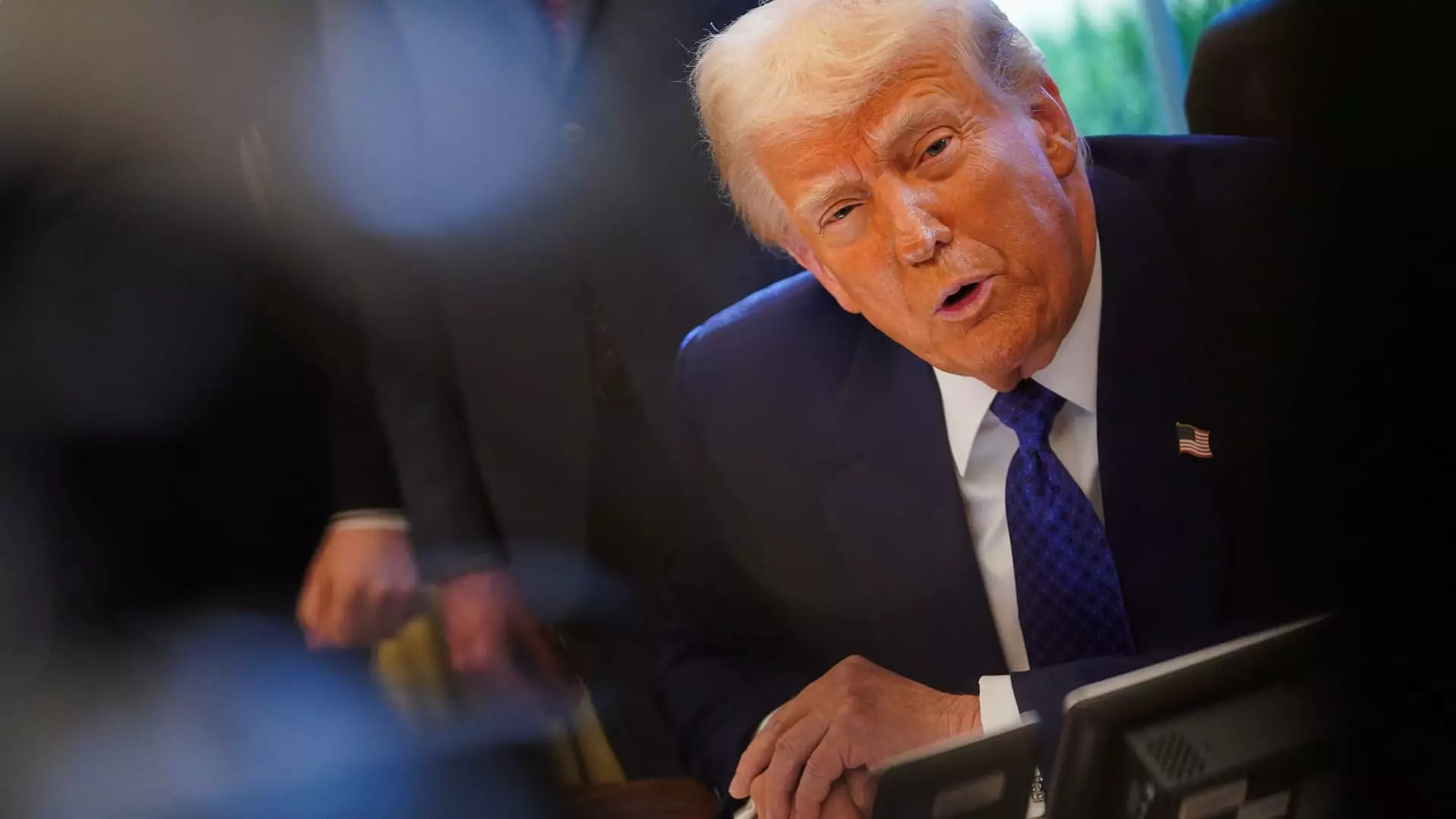As the world continues to grapple with the ramifications of the ongoing conflict in Ukraine, the geopolitical strategies being employed by the United States illustrate a complex intersection of military, economic, and political interests. A recent proposal from the Trump administration, suggesting that the U.S. be granted 50% ownership of Ukraine’s rare earth minerals, spotlights a potentially controversial path forward. This article provides an analysis of the implications of such a proposal and the underlying motivations driving it.
Rare earth minerals are crucial components in modern technology, utilized in electronics, renewable energy solutions, and military equipment. They are not particularly rare but are often found in regions with complex geopolitical dynamics, making access to them a priority for many countries. For the United States, which has been seeking to reduce its dependence on foreign supply chains, aligning interests with Ukraine—home to significant reserves of these minerals—could represent a strategic advantage.
The Trump administration’s proposal, as outlined by multiple U.S. officials, frames the ownership of these resources as a means for Ukraine to offset the substantial financial support it has received from the U.S. since the onset of the war in February 2022. Such an arrangement raises critical questions about sovereignty, exploitation, and long-term impacts on the Ukrainian economy.
President Volodymyr Zelenskyy’s initial hesitance to sign the draft proposal during his meeting with Treasury Secretary Scott Bessent highlights the sensitive nature of the offer. While the document was described as a memorandum rather than a security agreement, Zelenskyy’s need for careful consideration suggests a belief that such an arrangement could impose long-term implications for Ukraine’s autonomy and governance.
The potential for U.S. troop deployment in Ukraine to protect these resources adds another layer of complexity. While Defense Secretary Pete Hegseth stated that American troops would not be part of security guarantees, the public discussion surrounding this issue reveals a willingness within certain U.S. circles to escalate military involvement based on geopolitical negotiations.
The specter of increasing U.S. control over Ukrainian resources cannot be viewed in isolation. It is essential to consider how such moves are perceived globally, particularly by Russia. The proposal might be interpreted as a Western encroachment into a sphere of influence that Russia considers vital. As tensions escalate and negotiations for peace are either rejected or unfulfilled, the potential for military confrontation grows.
Moreover, former President Donald Trump’s remarks regarding wanting to secure a $500 billion stake in Ukraine’s rare earth minerals and his description of Zelenskyy as “the greatest salesman on Earth” suggest a transactional view of international relations. This rhetoric obscures the humanitarian aspects of the crisis and reduces complex geopolitical relationships to mere financial negotiations.
Zelenskyy emphasized in various statements that survival without American support is increasingly problematic. This acknowledgment underlines the reality that Ukraine remains reliant on U.S. military aid and political backing in the fight against Russian aggression. The implications of this dependency, however, cannot be overstated. A focus on resource ownership may divert attention from the broader goal of ensuring peace and stability in the region.
The fundamental question arises: what price is Ukraine willing to pay for American support? As the conflict lingers, the bargaining chips in this high-stakes negotiation evolve, potentially benefiting the U.S. at the expense of Ukrainian self-determination.
The Trump administration’s proposition concerning Ukraine’s rare earth minerals signifies more than a mere economic arrangement; it encapsulates the broader struggles of power dynamics, resource control, and military involvement in foreign conflicts. While it highlights the pressing need for strategic resource management, it also raises ethical concerns regarding the implications of such proposals on Ukraine’s sovereignty and long-term stability. As Ukraine navigates its path through this multi-faceted geopolitical landscape, the decisions made today will have lasting repercussions for its future, and indeed, the global order.

